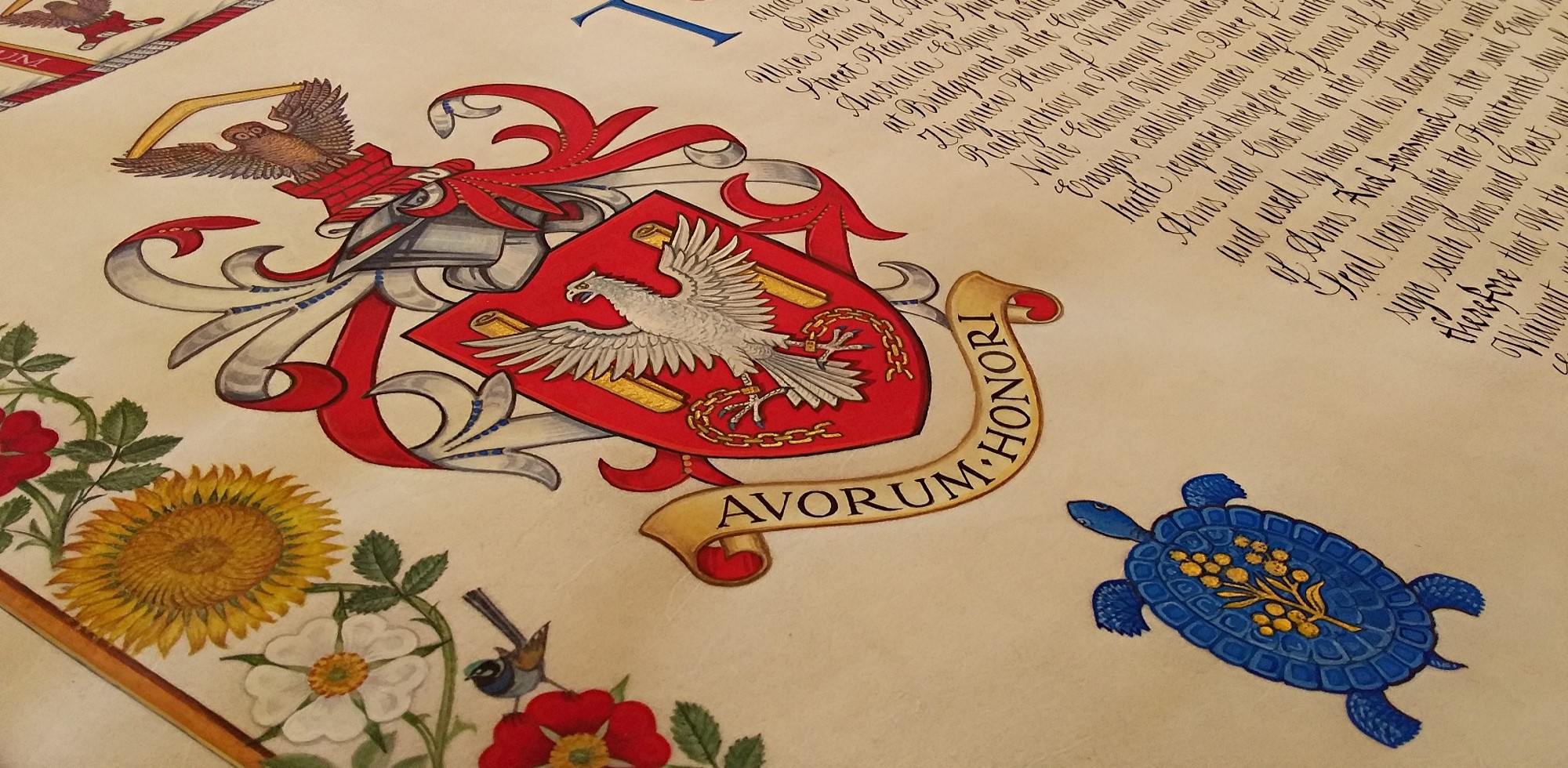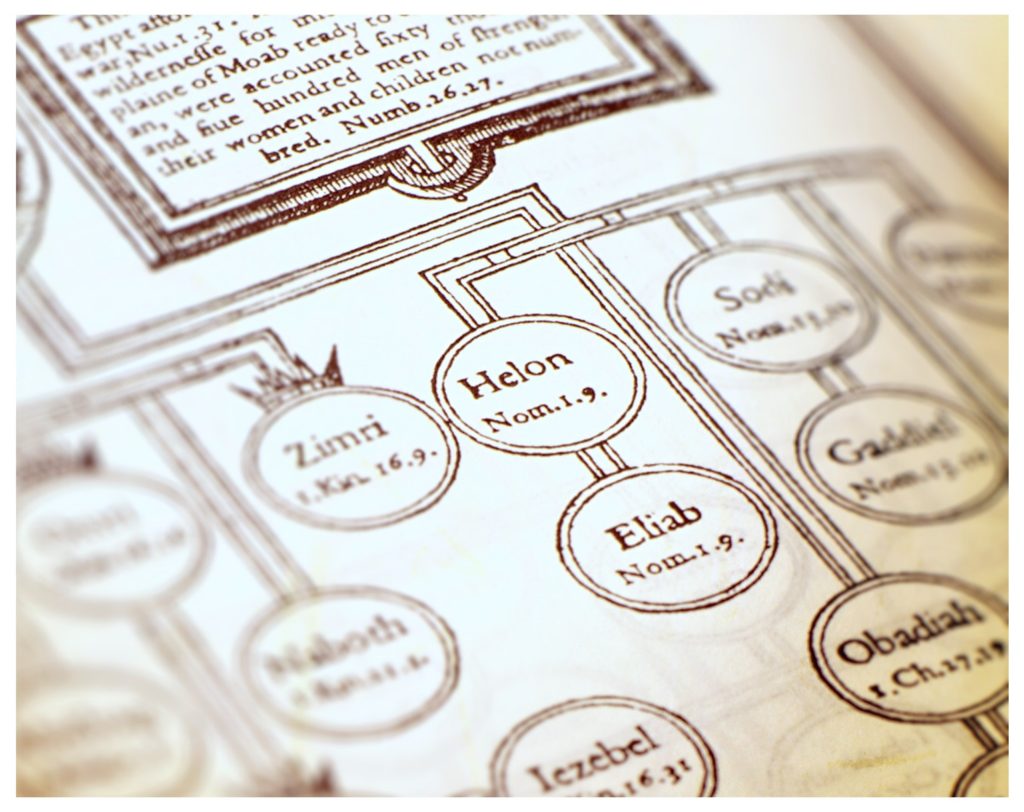
The Helon Name – Legend and History!
HELON is a surname, the name of an ancient Scythian culture, a language, a Christian, geographical and botanical name of biblical, Hebrew and Greek origin.
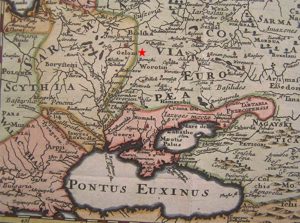
HELON (traditionally pronounced ‘hɛə’loɴ in Hebrew and phonetically spelt khay-lone’) is one of the world’s rarest and oldest dynastic bloodlines of biblical and ancient origin.
Etymology
The name Helon is derived from the Hebrew alphabet (Aleph-Bet): He, Lamed, Nun Sofit.
Recorded in sacred writings, biblical and ancient sources, historical and non-canonical texts, the name Helon can be translated, transliterated and rendered in many forms: Chjelyan, or Djilan in Chinese; Helan in Czech; Helon in English and Latin; Hélon in French; Gelon, or Γέλων in Greek; Chelon, Chêlôn, Khay-lone’, האֵלן ,הלן, or האֵלנ in Hebrew; Elon, Elonnak, Helonnak, or Kelon in Hungarian; Chelen, Chelon, Khelen, Khelon, Shelen, Shelon, Zhelen, or Zhelon in Lemko; Hoelun or Hulun in Mongolian (Latin script); Gehlen, Gelen, Gelin, or Гелен in Russian; Cielen, Czeleń, Czellen, Helhan, or Helhon in Rusyn; Jilan or Yilan in Turkic; Gelon, or Гелон in Ukrainian – with the common spelling in the Polish language (since the 15th century) being Helon, although the name can also be rendered as Chelon; the ‘C’ being silent.
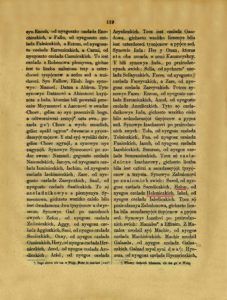
Whereas the surname Helon traditionally means ‘sand’ in Hebrew (1), in the Polish language it means ‘Żołw’ – a turtle.
Spelling of the name Helon is often confused with, rendered, and pronounced Helen, Helin, Hillen, or Elon.
A Note on Spelling: ‘G’ Versus ‘H’ – the Paradox
It is not uncommon when reading Ukrainian, Russian, and indeed some Greek translated and transliterated texts to encounter various discrepancies and little consistency in the rendering of, and the interchangeable use of the letters ‘G’ and ‘H’.
According to William F. Hoffman, former member of the Board of Directors of the Polish Genealogical Society of America (PSGA), writer, translator and professional linguist – who holds an M.A. in Foreign Languages – one might find the masculine English Christian name Gregory rendered Grigoriy in Russian, yet spelt Hryhoriy in Ukrainian because Russian does not use the sound of ‘h’, so when names with that sound come into Russian, they are rendered with hard ‘g’, vice versa. (2)
“Perhaps the simplest way for English-speaking people to deal with this whole question is to treat h and g as potentially the same letter.” (2)
In her book Strange Parallel: Zebulun – the Netherlands, A Tribe of Israel, Dutch author Helene Koppejan wrote that in certain dialects “the g and ch are interchangable with the h.” (3).
So you can expect the letter h may be rendered either ch, g, or h in our alphabet.
Genesis
Among the earliest known written references to the name Helon as rendered in its current and correct Latin form are contained in various Latin Codexes, including the early 13th century Codex Gigas (the Great Book, or Devil’s Bible) – the world’s largest and most complete bible manuscript which predates the King James Bible by approximately 300 years and the Gutenberg Bible by approximately 150 years.
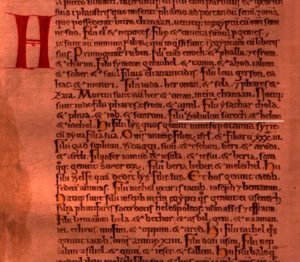
According to family lore – and quantified by extensive biblical, gnostic, archaeological, ancient, historical, cartographic, linguistic, and genetic evidence – the progenitor of the family Clan was Helon, the second son of Zebulon ben Jacob, Prince of the Tribe of Zebulon.
First century Romano-Jewish historian Titus Flavius Josephus (c. 34 – 100 CE) wrote that ‘Zabulon had with him three sons – Sarad, Helon, Jalel.’
The ancient Greek historian Herodotus (c. 484 – 425 BC) wrote of the forest-steppe Scythian Helon tribes, whilst internationally acclaimed Professor and Chair of Ukrainian Studies at the University of Toronto, Paul R. Magocsi wrote that Helons were Scythians who established fortified centers to coordinate their trade; one of the largest of these was Helon/Bil’sk.
In keeping with the seafaring occupation and inherent traditions of the Tribe of Zebulon, the name Helon, its usages and derivatives are synonymous with traits indicative of water: Zebulon, the sea; Helon, the sand; Eliab, the ship; (C)Helonians, turtles; Helonias, the Swamp Pink Lily, or Bog Candle of the Liliaceae family. In Chinese and Turkic the name refers to sea serpents or snakes.
References:
(1) Ginzberg, Louis. The Legends of the Jews. The Jewish Publication Society: Philidelphia, USA; 1911; p. 221.
(2) Hoffman, William F. and Helon, George W. First Names of the Polish Commonwealth: Origins & Meanings. Polish Genealogical Society of America: Chicago, USA; 1998; pp. 46-47.
(3) Koppejan, Helene. Strange Parallel: Zebulun – the Netherlands, A Tribe of Israel. Artisan Sales: California, USA; 1984; p. 53.
Connect with Me!
Copyright (C) George W. Helon: Australia; 2018-2025.
Now with SSL Certification for your Security!

